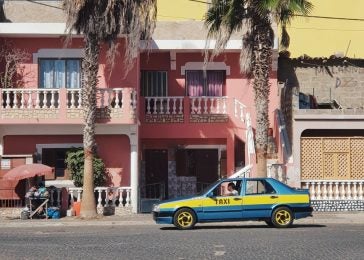Portuguese
Overview
 Portuguese is the sixth most commonly spoken language in the world. It is the official language of Brazil—the largest country in Latin America, with the eighth-largest economy in the world—and, of course, Portugal, including the archipelagos of the Azores and Madeira. Portuguese is also the official language of several other countries (known as Lusophone countries) that include Cape Verde, Angola, Mozambique, Guinea-Bissau, East Timor, São Tomé, and Príncipe.
Portuguese is the sixth most commonly spoken language in the world. It is the official language of Brazil—the largest country in Latin America, with the eighth-largest economy in the world—and, of course, Portugal, including the archipelagos of the Azores and Madeira. Portuguese is also the official language of several other countries (known as Lusophone countries) that include Cape Verde, Angola, Mozambique, Guinea-Bissau, East Timor, São Tomé, and Príncipe.
The U.S. government designated Portuguese as a “critical language,” and there are generous scholarships and unique educational opportunities available.
Why Portuguese at URI?
Perfect Location
Southern New England is home to a large Portuguese-speaking community of Portuguese, Brazilians, and Cape Verdeans. Over 10% of Rhode Islanders claim Lusophone ancestry ( the highest percentage in any state), and in Massachusetts, Portuguese speakers are the second linguistic group, an estimated 800,000 to one million. URI has a real demand for Portuguese classes from students who want to study the language/culture of their ancestors or to learn this “critical language.”
Growing Program
Because of the growing popularity of Portuguese as a language choice, we’ve just launched a new advanced Portuguese course for students who are interested in further pursuing their Portuguese studies. The Department of Languages supports Portuguese studies and plans to provide other opportunities for students in the near future. Come study Portuguese at URI, and grow beyond the borders of your world and perspectives.
Careers
There are plenty of job opportunities for Portuguese speakers in Rhode Island and Massachusetts, due to the states’ demographics. And, if you study Portuguese with a minor or a major in areas like business, engineering or marketing, you will have ample opportunities to work for U.S. government enterprises in Lusophone countries; engineering companies in Angola, Timor, and Brazil; renewable energies or innovated textile industries in Portugal; and the World Bank and the United Nations, among other opportunities.
